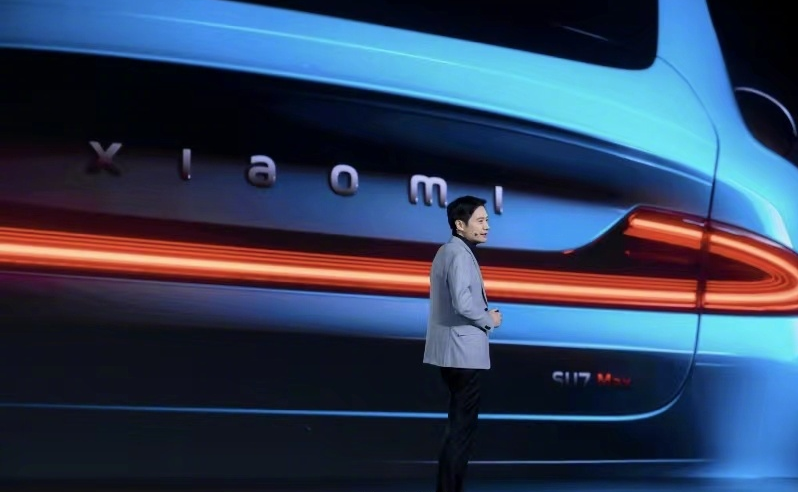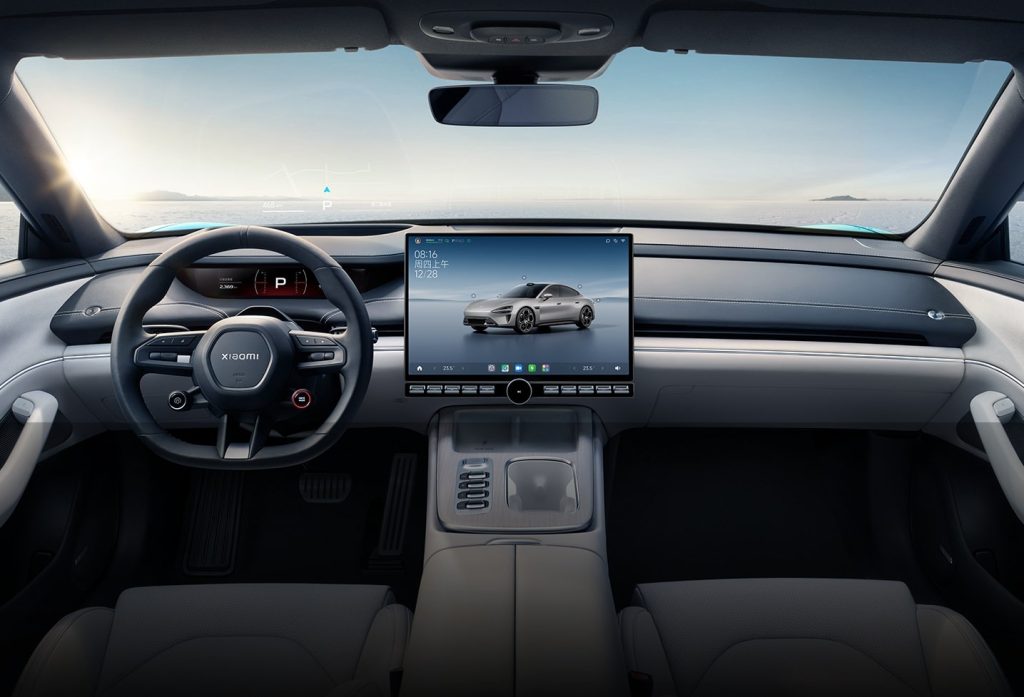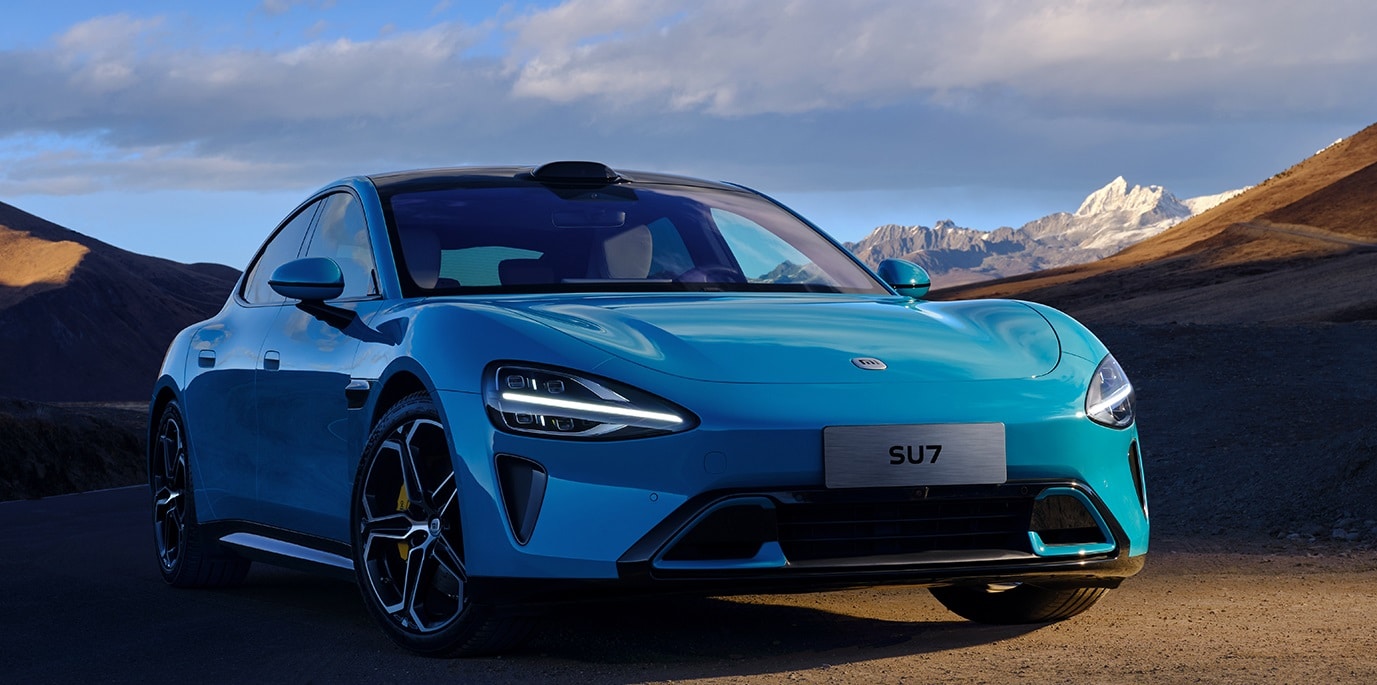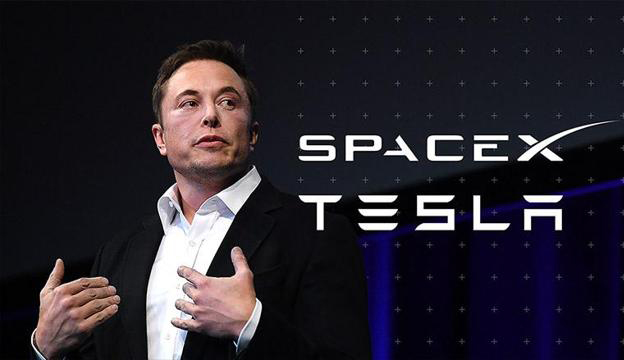Highly anticipated Xiaomi, on the 1003rd day after officially announcing its entry into the automotive manufacturing sector, held the Xiaomi Automotive Technology Conference.
The tech company unveiled its first electric vehicle on Thursday, a sedan named SU7. Xiaomi’s founder and CEO, Lei Jun, stated that they have set an ambitious goal: to create a dream car that is not only sleek and comparable to Porsche but also capable of competing with Tesla. The long-term objective is to become one of the top five global car manufacturers through 15 to 20 years of effort.
The company plans to invest ¥20 billion CNY (approximately $3 billion dollar) in research and development this year to achieve this vision. Lei Jun emphasized that their goal is to create a smart mobile space that is not only visually appealing, user-friendly, and comfortable but also safe. Achieving this goal is no easy task, and Xiaomi has placed a strong focus on battery technology. Additionally, they have established their own electronic factory to ensure the performance and quality of batteries.

During the conference, Lei Jun introduced Xiaomi’s automotive capabilities in five aspects: battery, battery pressure, intelligent driving, smart cabin, and more.
Firstly, let’s look at the most crucial component of electric vehicles—the motor. Xiaomi claims that its Super Motor V8S, which has already been mass-produced, can reach 27,000 revolutions per minute (RPM), making it the fastest motor globally. In comparison, Tesla’s Model SP has a top motor speed of 20,000 RPM, and its 0-100 km/h acceleration takes just 2.1 seconds.
As for battery pressure, the highest voltage of Xiaomi SU7’s battery has reached 871 volts, showcasing remarkable technological prowess. Regarding battery safety, Xiaomi’s batteries comply with the world’s strictest standards for thermal failure safety and include a series of industry-leading safety technologies, such as the innovative inverted cell technology. In extreme situations, if thermal control is lost, a pressure relief valve in the cell center can rapidly release energy, ensuring maximum passenger compartment safety.
Furthermore, Xiaomi aims to be the king of winter electric cars, claiming that SU7 can achieve the highest levels in terms of range, retained value, heating speed, and charging speed under low-temperature conditions.
The third highlight is the integrated die-casting technology, which not only reduces production costs but also enhances vehicle structural safety. Xiaomi’s fully self-designed chain utilizes a 9,100-ton die-casting machine, slightly higher than the 9,000-ton machines used by Tesla and NIO. Although the difference is only 100 tons, it demonstrates Xiaomi’s determination to surpass existing standards.
Surprisingly, Xiaomi has also conducted independent research in materials, developing a unique alloy material called Xiaomi Titan Alloy through AI modeling from among 10.16 million formulations. Xiaomi is currently the only car manufacturer with mass-produced, independently researched alloy materials in China.

Having discussed hardware, let’s finally delve into Xiaomi’s intelligent aspects. In the face of formidable competitors like Huawei, Lei Jun showcased Xiaomi’s intelligent driving technology, developed entirely in-house. Their goal is to enter the industry’s top tier in autonomous driving by 2024. During the conference, Lei Jun demonstrated three technologies: zooming in on BEV, large-scale road models, and network occupancy for super-resolution.
Of course, Xiaomi’s most confident aspect must be its intelligent cabin ecosystem. Xiaomi’s HyperOS officially supports automotive systems. The central control screen of Xiaomi SU7 provides an interaction experience identical to that of mobile phones and tablets. Xiaomi smartphones seamlessly interact with the car system, and Xiaomi cars support wireless CarPlay and AirPlay, ensuring an excellent experience even for Apple users.
While this conference primarily focused on technology, Lei Jun thoughtfully teased some core selling points and design details of Xiaomi SU7 for fans. For instance, the all-wheel-drive of Xiaomi SU7 can achieve zero to one hundred acceleration in 2.78 seconds, with a top speed of 256 km/h and the largest front trunk of 105 liters among pure electric cars in China. Unfortunately, the most eagerly awaited information, the price, was not disclosed. So, how much will Xiaomi SU7 cost in the end?











